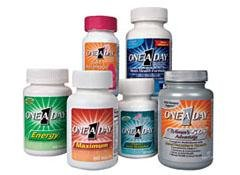
Our gut health plays a crucial role in our overall well-being. Proper digestion, nutrient absorption, and a strong immune system all rely on a healthy gut. One of the key factors that contribute to gut health is the microbiome – the vast community of microorganisms that inhabit our intestines. Recent research has uncovered a fascinating connection between probiotics and gut health, highlighting the positive impact that these beneficial bacteria can have on our digestive system.
The Microbiome and Gut Health
The human microbiome consists of trillions of microorganisms, including bacteria, fungi, viruses, and other tiny organisms. These microorganisms live in various parts of our body, with the largest concentration found in our gut. The gut microbiota greatly influence our digestive health, both by aiding in the breakdown of food and by promoting a balanced immune response. An imbalance in the gut microbiota, known as dysbiosis, can lead to a wide range of health problems such as gastrointestinal disorders, autoimmune diseases, and even mental health issues. Therefore, maintaining a healthy and diverse microbiome is crucial for overall well-being.
What are Probiotics?
Probiotics are live bacteria and yeasts that are beneficial for our health, especially in terms of improving gut health. These microorganisms can be found in certain foods, such as yogurt, kimchi, and sauerkraut, as well as in dietary supplements. When consumed, probiotics help restore the natural balance of bacteria in the gut. They work by inhibiting the growth of harmful bacteria, stimulating the immune system, and producing important nutrients that nourish the gut cells.
The Benefits of Probiotics for Gut Health
Research suggests that probiotics offer several benefits for gut health:
1. Enhanced Digestion
Probiotics aid in the digestion of complex carbohydrates, fats, and proteins, ensuring that our body can efficiently absorb nutrients from food. They also promote regular bowel movements and may help alleviate symptoms of digestive disorders such as irritable bowel syndrome (IBS).
2. Strengthened Immune System
The gut microbiome plays a vital role in immune function. Probiotics help modulate the immune system by promoting the production of antibodies and enhancing the activity of immune cells. By supporting a healthy gut microbiome, probiotics can strengthen our body’s defense against harmful pathogens.
3. Reduced Inflammation
Inflammation in the gut is often associated with various gastrointestinal disorders like Crohn’s disease and ulcerative colitis. Probiotics have shown promise in reducing gut inflammation by decreasing the production of pro-inflammatory compounds and promoting the growth of anti-inflammatory bacteria.
4. Improved Mental Health
Emerging evidence suggests a strong gut-brain connection, with the gut microbiome influencing mental well-being. Probiotics may positively impact mental health by modulating neurotransmitters, reducing stress hormones, and improving the overall balance of gut bacteria.
Choosing the Right Probiotic
With numerous probiotic products available, it’s important to choose the right one for your specific needs. Here are some factors to consider:
1. Strain Diversity
Look for a probiotic supplement that contains a variety of strains to maximize the potential benefits. Each strain offers different properties and functions, so a diverse mix is more likely to support a healthy gut microbiome.
2. Colony Forming Units (CFUs)
The number of viable microorganisms in a probiotic supplement is measured in CFUs. Higher CFU counts can indicate a more potent product, but it’s essential to strike a balance and consult your healthcare provider for personalized recommendations.
3. Shelf Stability
Ensure that the probiotic you choose has proper shelf stability. Look for products that mention refrigeration or are formulated to withstand room temperature, depending on your storage preferences.
Incorporating Probiotics into Your Routine
There are various ways to incorporate probiotics into your routine:
1. Food Sources
Include probiotic-rich foods like yogurt, kefir, kombucha, and fermented vegetables in your diet. These foods offer a natural and tasty way to introduce beneficial bacteria into your gut.
2. Dietary Supplements
If you struggle to consume enough probiotic-rich foods, dietary supplements provide a convenient option to ensure you’re getting an adequate amount of beneficial bacteria daily. Follow the instructions on the supplement packaging or consult with your healthcare provider for the appropriate dosage.
3. Prebiotic Foods
Support the growth and activity of probiotics in your gut by consuming prebiotic-rich foods like oats, bananas, onions, and garlic. Prebiotics act as fuel for probiotics, helping them thrive in the gut. The connection between probiotics and gut health is undeniable. By promoting a diverse and balanced gut microbiota, probiotics offer significant benefits, including improved digestion, a strengthened immune system, reduced inflammation, and potentially enhanced mental health. Incorporating probiotics into your routine, either through food sources or dietary supplements, can be a valuable step toward maintaining optimal gut health and overall well-being.

